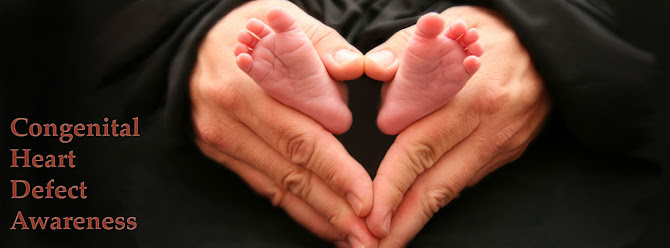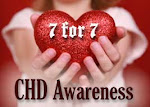As a parent of a child with Transposition of the Greater Arteries (TGA), I will never forget the moment when the surgeon sat down with me after her open-heart surgery and told me "She's fixed." When I asked what I could expect from then on out he told me "She'll be able to live a normal, active life" and "she'd only need a check-up once a year or so." What he didn't tell me is that she was NOT fixed. She will always need to be watched closely. It is likely that she will face complications down the road.
Sure, it's every pediatric cardiac surgeon's dream to tell a parent that a child is "fixed." It doesn't happen often. Some of the more severe defects require many surgeries, none of which are a "fix," but are aimed at extending the lifespan until a fix or alternative treatment can be found. But is it really fair for a surgeon to sugar-coat the truth? No, it isn't.
That's why I was upset when I found out that my daughter's defect is considered severe, requiring life-long care. I had entered into a world where TGA seemed like a minor defect. The truth was like a slap in the face that woke me up from my complacency.
The truth about Congenital Heart Defects is that many DO require life-long care and follow up - not with an adult cardiologist (that is often not specialized in CHD-care), but with a specialist in Adult Congenital Heart Defects. The
Adult Congenital Heart Association is working to spread the message, as are many CHD specialists across the world.
For an example, check out today's (17 June) news article from KSPR News in Springfield, Missouri:
Heart Defects need medical attention through adulthoodBy KSPR News (visit the link for video footage)
Fifty years ago babies born with congenital heart defects weren't expected to live into adulthood. But thanks to advances in medicine, most babies with heart defects now live long, full lives."What it's called is tetralogy of fallot. It's one of the most common occurring complex defects."Kyra's heart had four abnormalities. The pulmonic valve was narrowed, and there was a hole in the septum, or wall between the right and left ventricles. Also, a main artery was in the wrong place. These issues caused her right ventricle to get thick because of all the extra pumping it had to do. At age 4, Kyra had surgery. She was considered cured."Then I started developing symptoms. Shortness of breath, electrical conduction problems, arrhythmias."It turns out she needed another valve replacement. The repaired valve started to leak. Dr. Keith Oken says Kyra was a victim of a common misconception."Which is that she was cured with the surgery she had. That is rarely the case."Kyra needs continuous, life-time care. But there are not many cardiologists trained to manage cases like hers. That's because until recently most people with congenital heart defects did not survive into adulthood. So to make sure Kyra stays healthy, she sees her regular doctor and experts at mayo clinic. Plus she's doing whatever she can to keep her heart strong...Doctor Oken says people with adult congenital heart defects need to continue seeing their doctors... And to see a heart defect specialist.

